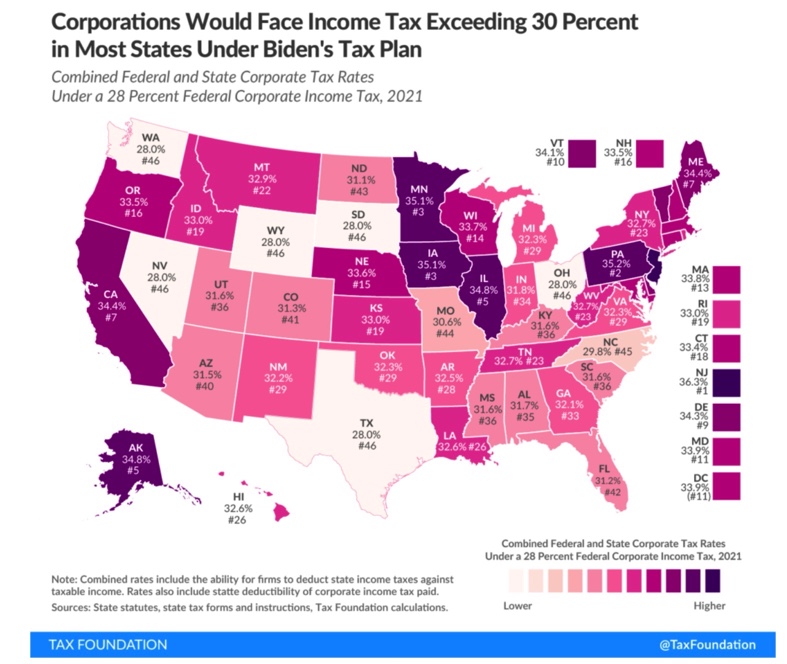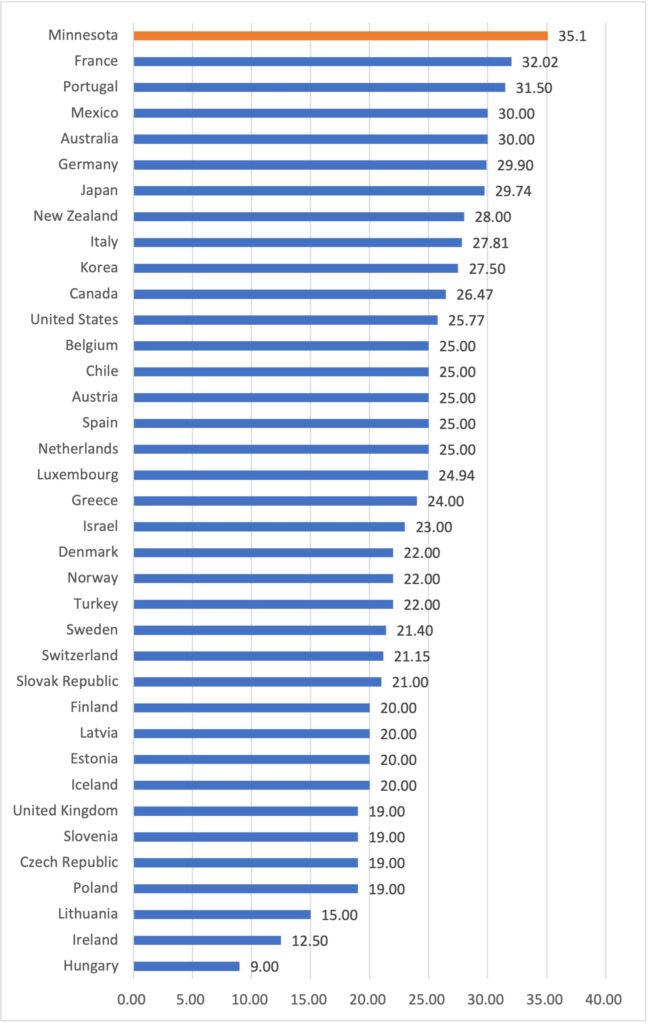Under Biden’s proposal, MN will have highest combined corporate income tax rate in OECD
Joe Biden just unveiled his $2 Trillion infrastructure plan– The American Jobs plan. The plan includes a proposal to raise the federal corporate tax to 28%. This will put the United states at some of the highest corporate income taxes in the OECD, making the country highly uncompetitive. But for some high tax states like Minnesota, this spells even more trouble.
At 9.80% Minnesota has the third highest corporate income tax in the United States. With the federal corporate income tax rate at 21%, the effective combined rate for Minnesota is currently 28.7%. If Biden’s proposal is enacted into law, Minnesota’s combined corporate tax will rise to 35.1%, still third highest in the nation.

But we should keep in mind that Minnesota is not only competing with other states for economic resources– capital, labor, ideas–, it is also competing with other countries. So, a higher corporate tax rate has implications for Minnesota’s competitiveness in the global economy.
Let us, for instance, take a look at how Minnesota and other sates compare with countries in the Organisation of Economic CO-operation and Development (OECD) under the new plan. According to the Tax Foundation,
If the federal corporate tax rate were raised to 28 percent this year, corporations operating in 32 states and the District of Columbia would face the highest combined corporate tax rate in the OECD, a distinction currently held by France with a 32.0 percent rate. Next year, France will lower its corporate tax rate to 25.8 percent, leaving Portugal with the highest corporate tax rate in the OECD at 31.5 percent.
Corporations in Iowa, Minnesota, New Jersey, and Pennsylvania would face a combined corporate income tax rate at or above 35 percent. Only seven states—Ohio, Nevada, North Carolina, South Dakota, Texas, Washington, and Wyoming—would face a corporate rate less than 30 percent, all of which forgo a corporate income tax except North Carolina, with a low rate of 2.5 percent.
In short, Minnesota would be among the 32 US states with the highest combined corporate income tax rate in the OECD. But with Governor Walz’s plan to hike the corporate tax rate in Minnesota to 10.8% means that Minnesota will have the second highest corporate income taxes, after New Jersey.
But as John Phelan has explained, New Jersey’s highest rate kicks in only at incomes of over $1 million, while Minnesota’s highest kicks in at incomes over $0. So, Minnesota will effectively have the highest combined corporate income rate faced by small businesses in US, and by extension the OECD.
Figure 1: Combined corporate income tax rate, %

On its own, Gov. Walz’s plan to hike the corporate tax rate is bad policy: it makes Minnesota highly uncompetitive in attracting capital and high skilled labor. Adding Biden’s tax proposal, Minnesota is bound to end up with some of the highest corporate taxes in the developed world.
This should have us concerned. In a world where even labor is becoming more mobile, topping the list of regions with highest taxes is not something we should be aspiring to be.